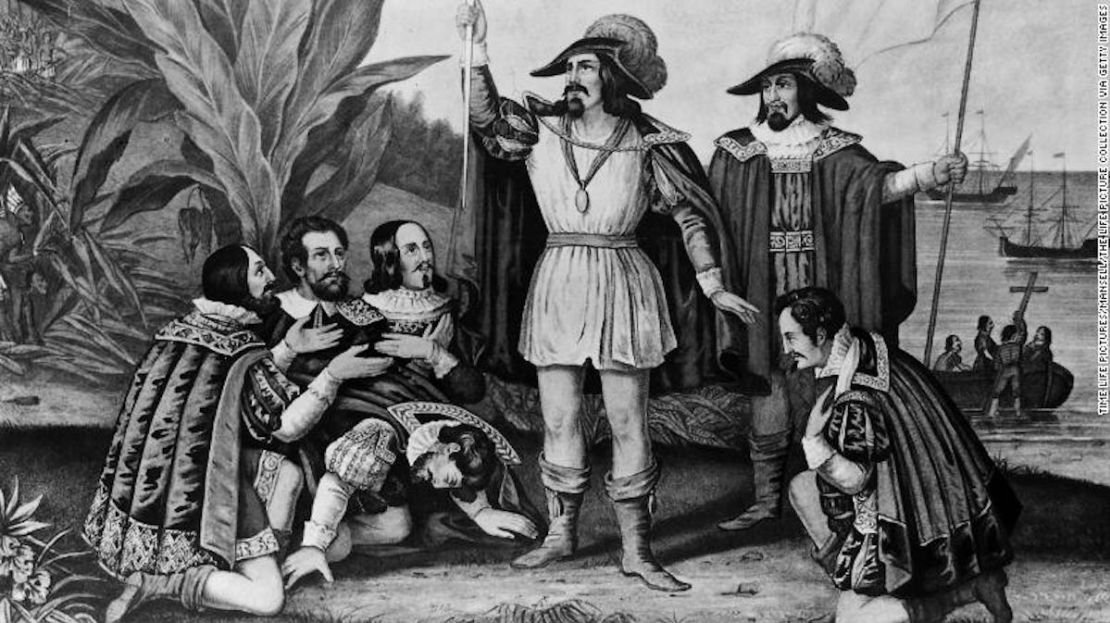(CNN Español) – October 12 is a date that is commemorated in different places and from different perspectives around the world.
In 1842, Christopher Columbus’s expedition landed on Guanahoney Island in the Bahamas with a crew of 90 men who had sailed about 10 weeks earlier on the ships Nina, Pinta and Santa Maria.
But the episode, known as “Columbus Day” in the United States, has long been known as Columbus Day in the Americas – where many have now begun to call it Indigenous Resistance Day or Cultural Respect Day. Diversity – In Spain it is called Hispanic Heritage Day.
“Spain’s national holiday or Hispanic Heritage Day (…) commemorates the historic anniversary of the Spanish discovery of the Americas, a transcendent historical milestone for our country that begins a period of linguistic and cultural anticipation in the United States. All of this occurred around the time the modern state was built,” explains The Spanish government through its Ministry of Defense.
Also, he says, it is a festival where “unity, twinning and we express our bond with the international community”.
In Spain, the date is a holiday – meaning no work is done – and is commemorated with an event in Madrid’s Plaza de Colon, where tributes are paid to those who died for flag and country, followed by a military parade. Paseo de la Castellana. Every year, the king and members of the royal family, representatives of the powers of the state and the heads of the Spanish autonomies attend.
The Lay 18/1987, Since the commemoration was established in 1987, “the chosen date, October 12, Spain, “marks the historic anniversary of the completion of the state-building process based on our cultural and political diversity. , and the consolidation of the Spanish kingdoms into a single monarchy begins a period of linguistic and cultural projection beyond European limits.”

Recently, more historians, at least outside of Spain, are discussing the way this episode is remembered. But in addition to the review of historical facts, thanks to the broad movements that reject the meaning given to this date, a series of questions have arisen in many American countries.
Columbus was not the first person to reach the continent, so he was not responsible for “discovering” it. In contrast, indigenous peoples had been living in the Americas for centuries, long before the arrival of the Spanish expedition.
Commanded by the Spanish kings, Columbus discovered nothing new when he searched for a route to the East Indies. But the narrative that presented him as the “discoverer of America” had already been widely surpassed in many places: the “New World” was new only to the Europeans who sailed in his name.
Instead, it’s about the violence, disease, and death that followed the arrival of colonists to American territory, shaping the continent we know today.
However, Columbus’ voyages “had an undeniable historical impact, sparking a great era of Atlantic exploration, trade, and eventual colonization by Europeans,” according to historian David M. Perry said. An opinion piece For CNN about Columbus Day.
With information from Angela Reyes Haczek, Alicia Lee and Sofia Benavides.





